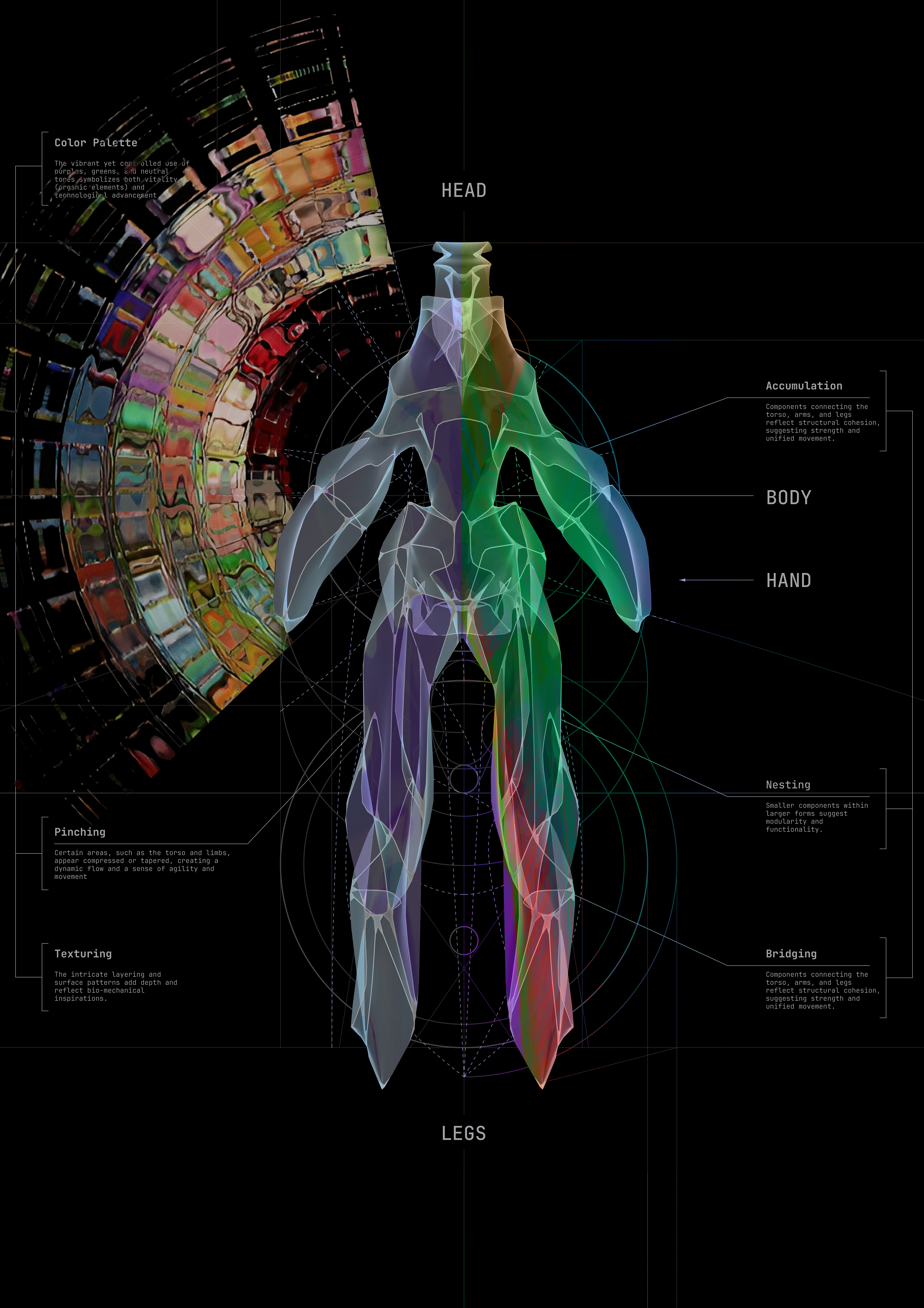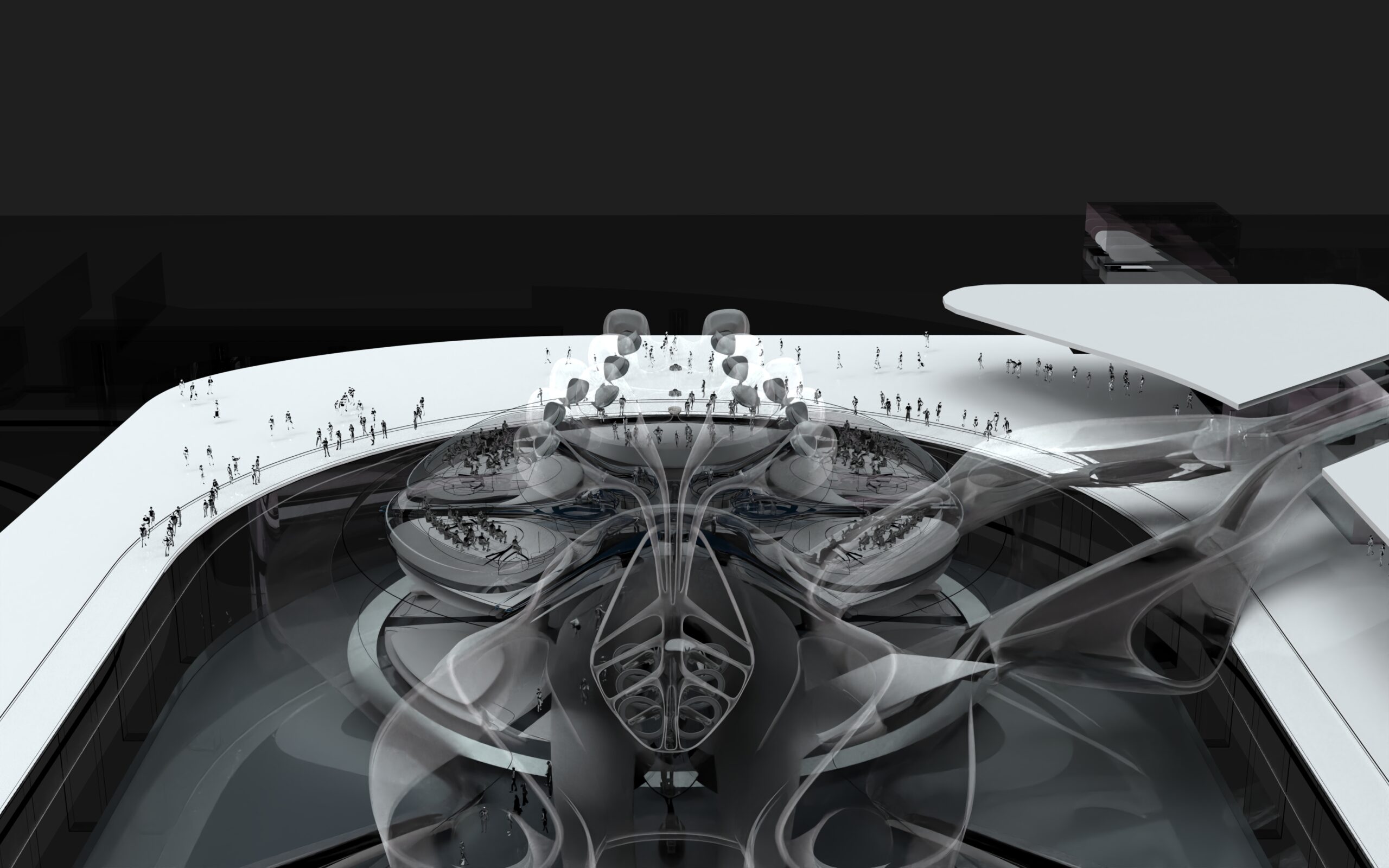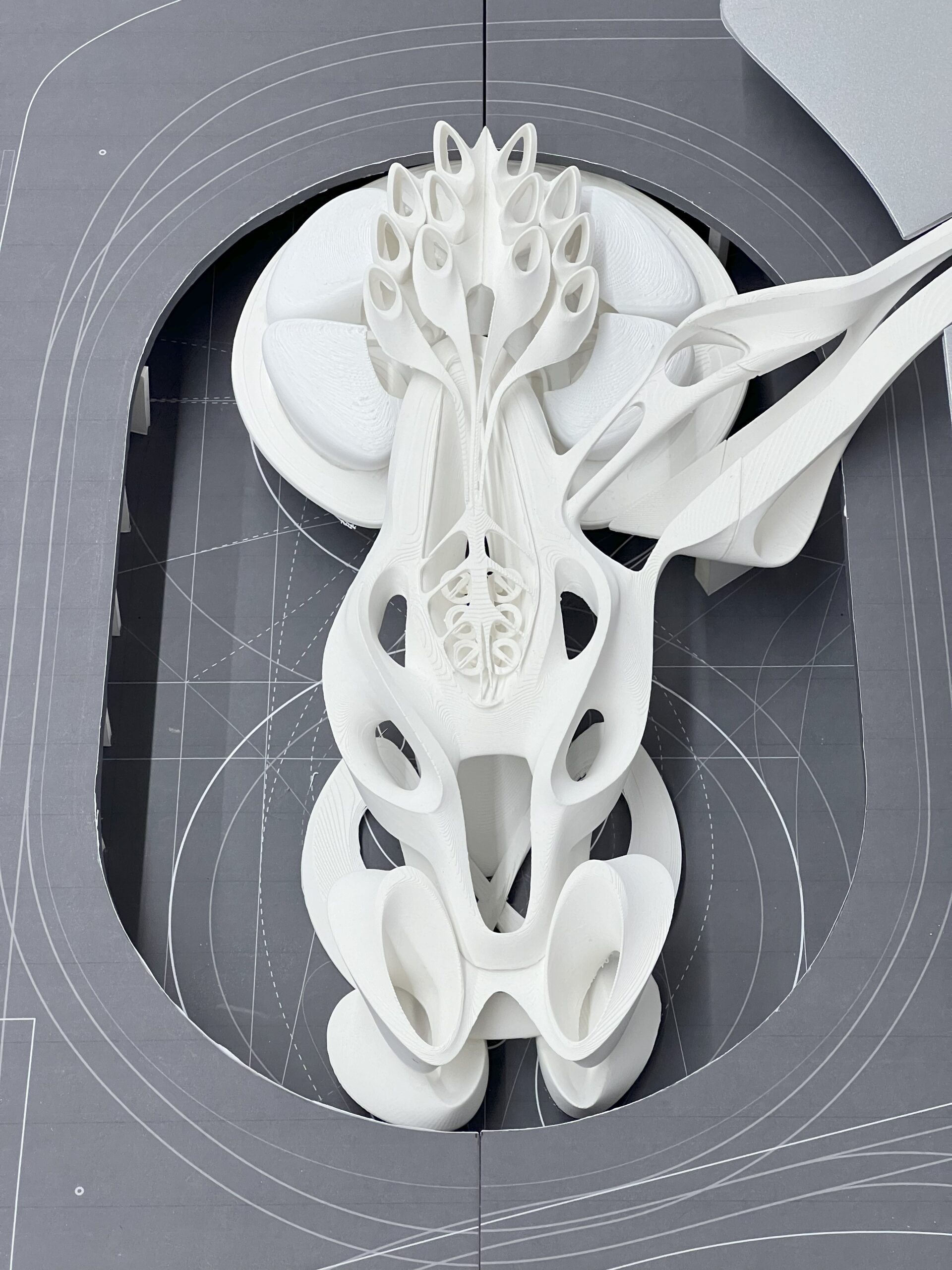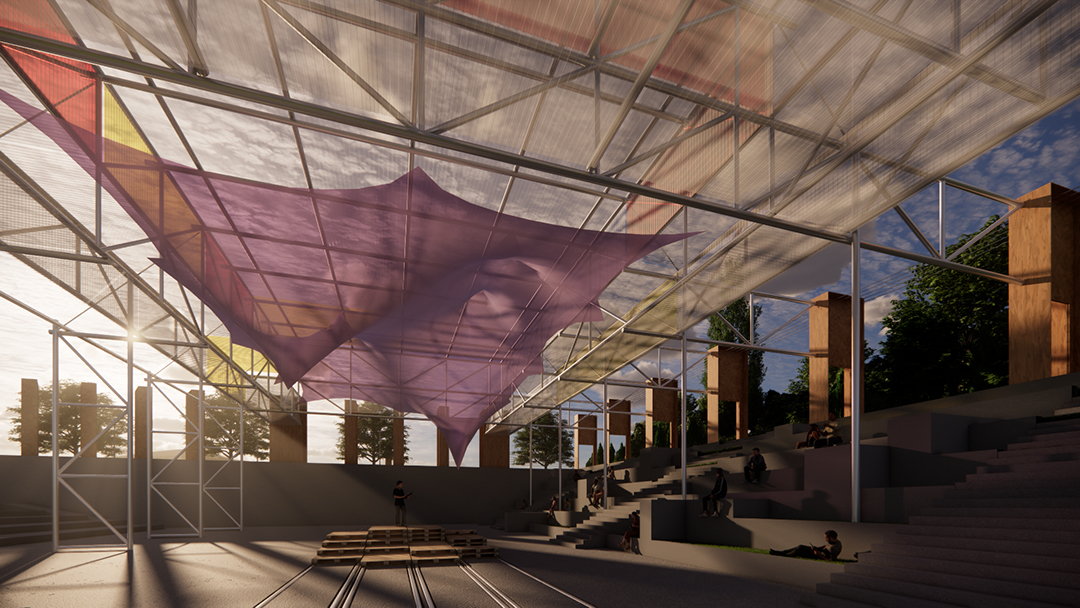INTERMORPH
Students: Assem Mohamed Attia, Kan Laohavanich, Ruslan Shigapov, Arthur Wostry
Our project focused and explored the idea of promoting a more direct democracy. We developed a concept that included both a physical and a virtual platform for debates and discussions. The aim was to strengthen citizen participation and enable transparent opinion formation.
A central element of our concept was the creation of a hybrid discussion space where people could participate in debates both physically and digitally. The virtual world allowed interested individuals to engage in discussions independently of their location and with greater flexibility. To ensure a well-founded engagement with the topics, we established pre- and post-debate
rounds that enabled targeted preparation and follow-up discussions. This not only deepened the understanding of the topics but also fostered a respectful dialogue.
A significant advantage of virtual participation is its wider reach, allowing more people to engage in discussions regardless of geographical limitations. This is particularly beneficial for
individuals who may not have access to physical debate spaces but can still actively contribute online. Additionally, online participants can greatly benefit from sensitization eorts, as digital tools provide new ways to raise awareness and enhance engagement with complex issues.
In addition, our concept included educational videos and immersive VR experiences that allowed participants to interactively engage with the discussed topics. These methods aims to
support awareness and knowledge dissemination, thereby promoting a sustainable discussion culture.
The design of our project was deliberately fluent and organic to create a natural and inviting environment, with forms and structures that reflect the human body to enhance a sense of
familiarity and comfort. The goal was to establish a direct connection to people and foster an atmosphere that encourages open exchange and participation.







